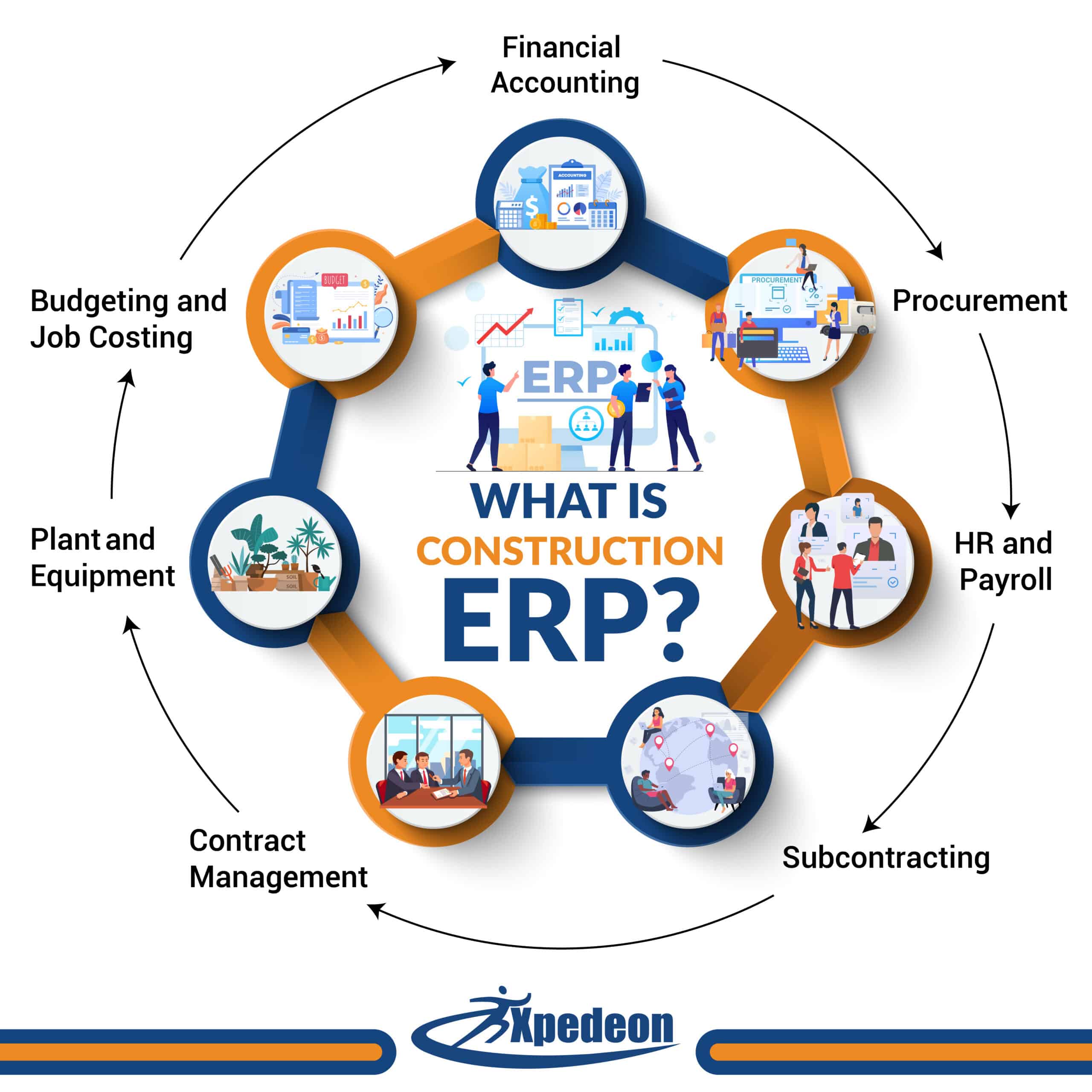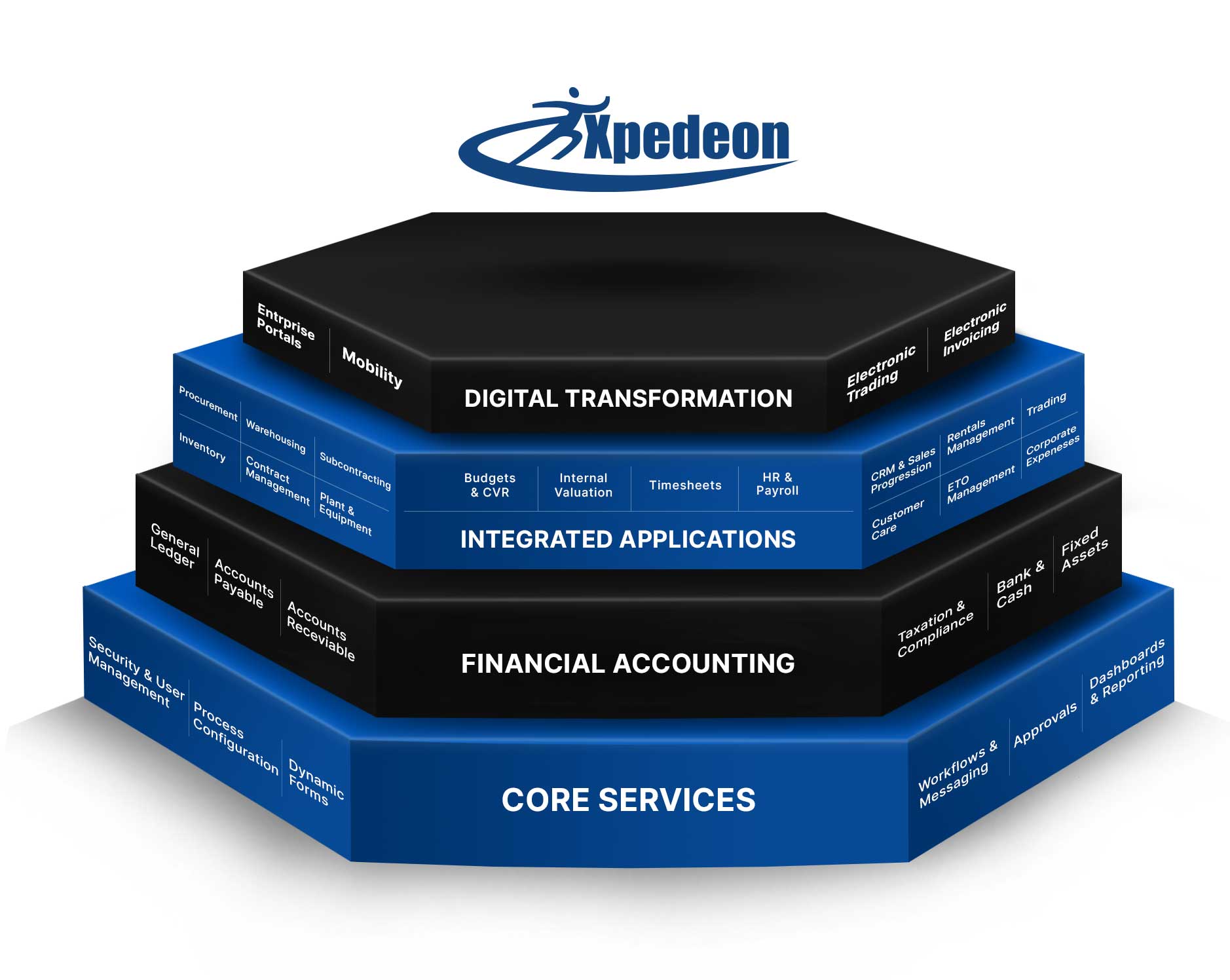The construction sector is expanding globally and contributing significantly to economic growth while directly impacting global GDP. Organizations are forced to adopt and implement digital solutions within their business due to increasing competition and compressing project delivery timelines. A Construction ERP solution helps businesses to automate and streamline processes and effectively manage them. It delivers business-critical controls and reporting that can help them manage their business proactively and successfully navigate their challenges.
Do you need help understanding how purpose-built construction ERP solutions can enable your organization to work smarter and faster? Read on.
Introduction
The construction industry has experienced steady growth despite shifts in global investment priorities. The pandemic has forced organizations to reconsider how they run and manage their businesses with an increasingly mobile workforce. Running the organization digitally and more joined-up has become a necessity rather than a “good to have.” Construction ERPs enable people, teams, departments, and project sites to work seamlessly on a common platform. They unlock tremendous efficiencies, time and cost savings, and increase individual productivity. Finally, they empower managers with live and real-time reporting for quick and informed data-driven decision-making.
What is an ERP Software?
Organizations use Enterprise Resource Planning (ERP) software for daily business activities such as project management, finance, accounting, manufacturing, risk management, procurement, compliance, and supply chain operations. It also helps in planning, reporting, budget management, and handling the organization’s financial results. ERP software supports multiple functions across SMBs, mid-sized businesses, or enterprises.
ERP systems bring departments, teams, and clients together and enable smooth data flow. It collects the organization’s shared transactional data from various resources and eliminates the chances of duplication. Enterprise resource planning systems are integrated platforms, on-premises or in the cloud, that can manage all aspects of distribution or product-based business. It provides complete transparency of business processes by keeping track of all production, finances, and logistics elements while maintaining the end-to-end workflow and data.
What is Construction ERP Software?
Construction ERP is designed for the unique requirements of construction companies. It enables effective management of general contractors, subcontractors, building materials, plants and assets, construction accounting, human resources, financial management, payroll, and service operations in one unified central database. Construction ERP systems fully manage the core of business processes, providing visibility, control, and accuracy of project costs and margins.
General-purpose ERP systems are viable for most traditional retail, distribution, and manufacturing businesses. However, they must address the construction industry’s unique requirements, necessitating a Construction-specific ERP.
Features of Construction ERP Software
Here are some features of Construction ERP software:

Project-driven Approach
Unlike other sectors, the construction industry’s core delivery of projects occurs at different sites and has varying duration because of the complexity of work. It means that without proper planning or framework can lead to substandard completion of the project, resulting in heavy losses. Therefore, implementing construction ERP helps in the project’s planning and manages each project independently by tracking the information, finances, documents, and reporting, which results in keeping track of the profits and margins of every project while maintaining the transactions. It also helps with avoiding unnecessary downtime and contractual issues during the project. ERP systems provide workflow visibility, allowing the different departments to work seamlessly and saving employees time relying on manual reconciliation and spreadsheets. It caters to the needs of the construction industry’s other sectors, from housebuilders to contractors or sub-contractors to engineers.
Lifecycle Management of Client Contracts
Lifecycle Management of Client Contracts is one of the most critical components that directly affect the revenue of the construction project. The construction ERP solution also provides features that enable tracking of retention, defect liability periods, advances, and reports on a site basis, manages variations, scope changes, and more. It also can raise the application for payments based on the progress of the projects and record client certificates which enable the organization with comprehensive capabilities to manage the complete Contract Lifecycle.
Management of Plant and Equipment
The ERP solutions can track the utilization of the equipment and items in the plant along with providing accurate job costing for the hire-charge projects. It helps general contractors adequately manage critical industry challenges by accelerating decision-making and providing instant visibility into real-time data. In addition, ERP will help drive the equipment’s optimum utilization levels, repairs, maintenance, and deployments while measuring the production KPIs and tracking operation costs.
Labour/Staff Timesheets and Payroll
ERP solution provides an effective time tracking system through timesheets integrated with payroll processing, representing the labor and staff cost according to the projects. Moreover, it helps reduce the excessive workload of managers and accountants and their time while working on projects.
CVR (Cost and Value Reconciliation) and Job Costing
The robust CVR enables the QSs and project managers to view the projects as it provides details of the source transaction. The CVR system also includes information about the different cost groups, like the cost commitment of the project, the budget allocated, scope chances, and more. It helps understand the margin movements and concludes whether the project benefits the organization. It also helps make a proper financial decision by analyzing the situation before taking action. An ERP solution for the construction industry offers powerful, insightful reporting to help the organization make data-driven decisions.
Job-to-date Accounting and Reporting
Construction projects often span financial years and perform efficient job-costing, and monitoring entails job-to-data cost reporting. Thus, ERP systems give visibility, accuracy, and cost-reporting of the projects, including payables, retentions, and more. Furthermore, it helps manage the business through resources, applications, and processes from a single unified platform in real time by optimizing all the resources. In addition, it gives better project cost control by automating processes and reducing unnecessary downtime and IT costs.
The Xpedeon Solution
Xpedeon is an end-to-end ERP Software Solution purpose-built for the Construction Industry with almost three decades of expertise in providing services to some of the most prominent leaders in the industry. Since our inception, we have delivered our services to clients from the United Kingdom/Europe, the Middle East, and India. Xpedeon is a unified solution that digitalizes processes, workflow, data, and reporting across every function. As a result, it increases the task’s efficiency, reduces time, lowers operational overheads, and integrates financial accounting across the business for a seamless flow of information between teams. It also helps gain quantum leaps in productivity, transparency, and agility across the enterprise.

Xpedeon is a versatile ERP construction management software designed particularly to achieve the requirements of general contractors, housebuilders, developers, and other specific contractors. To ensure the seamless integration of the software, our industry experts incorporate the application to avoid any issues. Furthermore, we proactively resolve our clients’ challenges by working closely with them.
Share this Post

